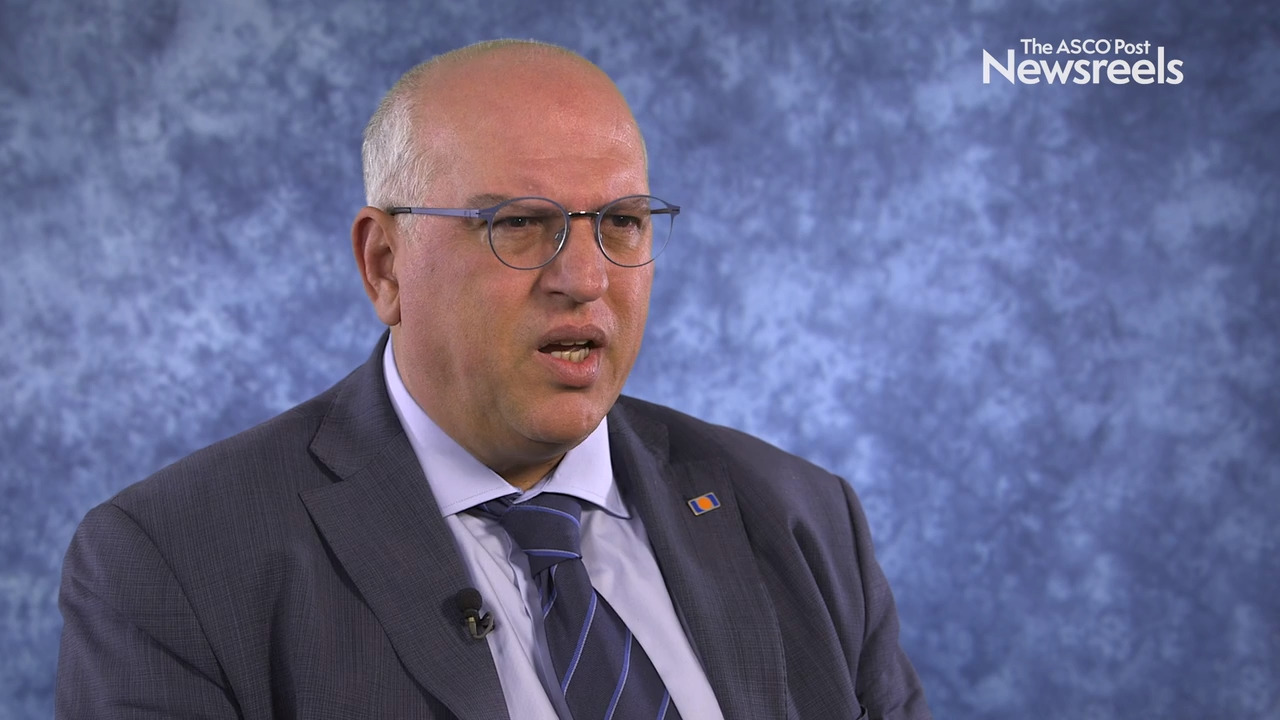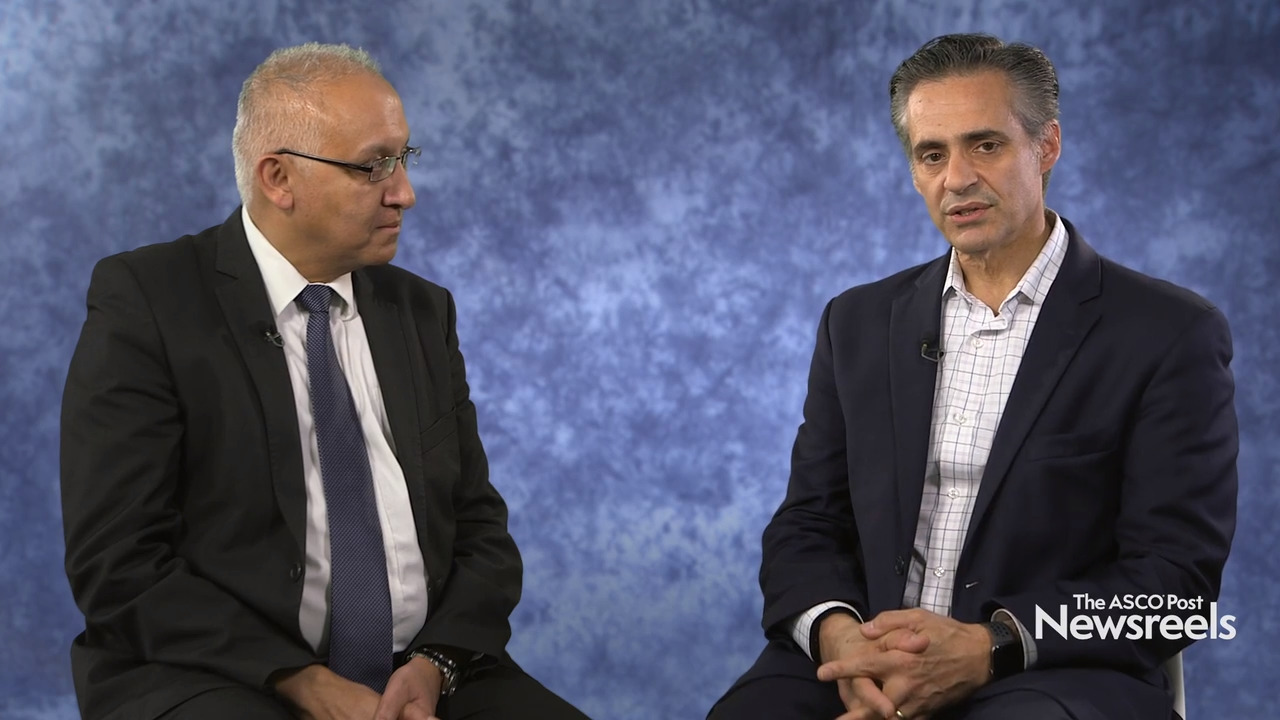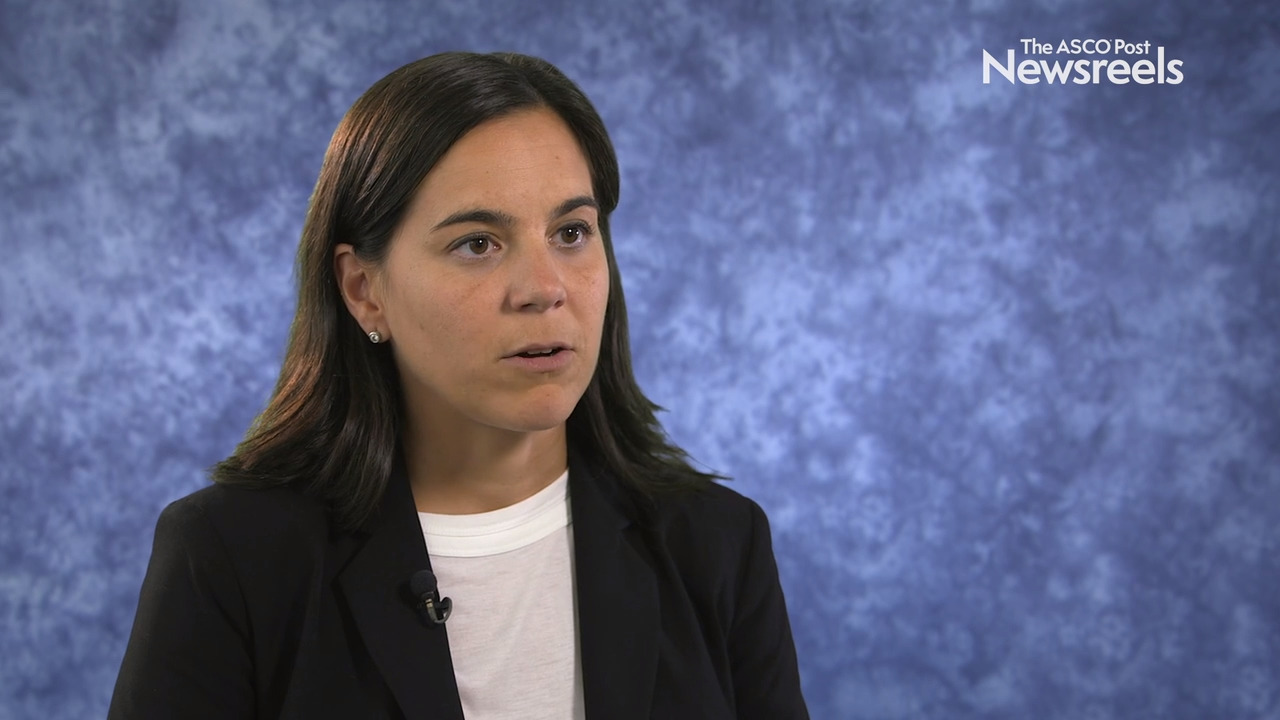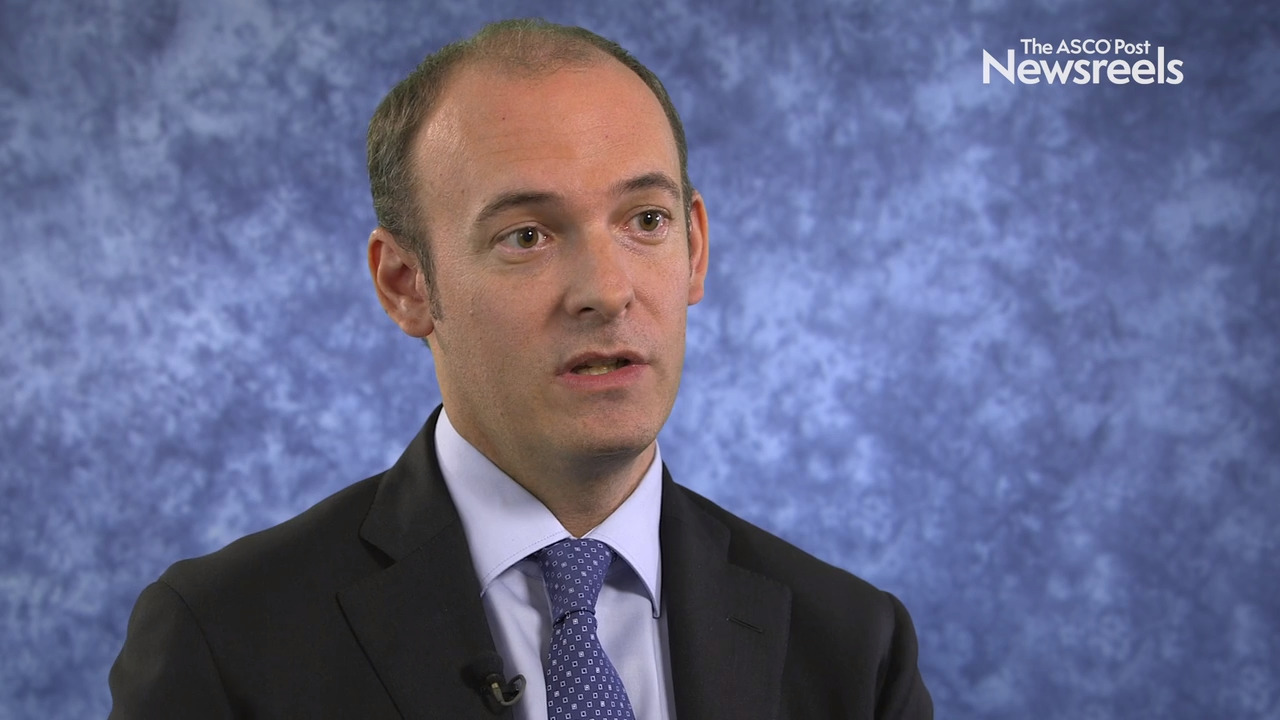Nicoletta Colombo, MD, on Lenvatinib/Pembrolizumab for Advanced Endometrial Cancer
ESMO 2019 Congress
Nicoletta Colombo, MD, of Istituto Europeo di Oncologia, discusses the efficacy of lenvatinib/pembrolizumab in metastatic endometrial cancer. The combination showed antitumor activity, regardless of tumor microsatellite instability or DNA mismatch repair status (Abstract 994O).
Paolo A. Ascierto, MD, of the Istituto Nazionale Tumori, Napoli, discusses phase III study findings confirming the superior activity of nivolumab vs ipilimumab in resected stage III/IV melanoma in terms of regression-free survival after a minimum follow-up of 36 months (Abstract 1310O).
Mansoor R. Mirza, MD, of Copenhagen University Hospital, and Robert L. Coleman, MD, of The University of Texas MD Anderson Cancer Center, discuss phase III study findings, which showed that by adding veliparib to front-line carboplatin and paclitaxel and continuing it as monotherapy maintenance, the PARP inhibitor extended progression-free survival in women with newly diagnosed high-grade serous carcinoma of the ovaries or fallopian tubes or tumors of primary peritoneal origin (Abstract LBA3).
Sungjune Kim, MD, PhD, of the H. Lee Moffitt Cancer Center and Research Institute, discusses phase II study findings on the safety and tolerability of nivolumab/ipilimumab plus stereotactic body radiation therapy (Abstract 1321P).
Angela Lamarca, MD, PhD, of the Christie NHS Foundation Trust, discusses findings from a study that showed new staging criteria should be considered for patients diagnosed with liver metastases in the absence of other extrahepatic tumor spread (Abstract 731P).
Aleix Prat, MD, PhD, of Hospital Clinic de Barcelona, discusses the findings of a meta-analysis showing that the HER2-E subtype may predict pathologic complete response beyond hormone receptor status in HER2-positive early breast cancer (Abstract 248P).





